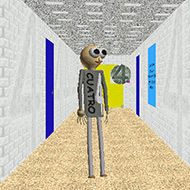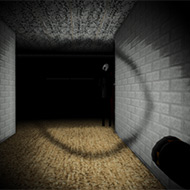
CloverPit
CloverPit immerses players in a living ecosystem contained within a small pit. At first, the challenge seems simple: plant a few clover seeds and maintain them. But the pit reacts dynamically to every action. Soil chemistry, moisture, and sunlight all affect plant growth, while micro-organisms and fungi interact unpredictably with your plants. CloverPit turns a gardening exercise into a layered survival strategy where observation and patience are essential for long-term success.
Dynamic Growth System
In CloverPit, plants compete and cooperate based on the environment you create. Every seed has the potential to influence neighboring flora, and the soil responds to watering and sunlight in real time. Mistakes such as overcrowding or overwatering can disrupt the ecosystem, while careful planning leads to sustained growth. The game encourages experimentation, making every session a unique opportunity to learn the pit’s patterns and rhythms.
- Interactive Soil: Moisture and nutrients adjust according to actions.
- Plant Interactions: Competition and cooperation determine outcomes.
- Emergent Microfauna: Organisms appear that can aid or challenge your growth.
- Persistent World: Decisions leave long-term effects for future cycles.
Mutation and Adaptation
As your ecosystem develops, plants may mutate to adapt to specific environmental pressures. Some clovers develop stronger roots to survive dry conditions, while others grow faster and potentially destabilize nearby plants. The pit gives subtle feedback through visual cues and soil changes, allowing players to anticipate environmental shifts. Mistakes provide lessons rather than punishments, encouraging thoughtful experimentation and strategic planning.
- Adaptive Plant Traits: Mutations affect growth patterns and resource needs.
- Visual Feedback: Soil and plant changes indicate ecosystem health.
- Strategic Planning: Patience often yields better results than rapid expansion.
- Hidden Depths: Deeper layers may contain rare flora and surprises.
Balance and Harmony
Success in CloverPit depends on maintaining a balance between growth and decay. Players must observe the ecosystem, adapt to unexpected events, and make choices that sustain life. Each cycle is unique, reflecting the interplay between environmental conditions and player actions. CloverPit is as much about reflection and observation as it is about growth, creating a meditative experience of survival and adaptation.
- Nonlinear Progress: Each decision leads to unique outcomes.
- Emergent Gameplay: Complex interactions develop naturally over time.
- Environmental Storytelling: Soil and plants communicate ecosystem status.
- Replay Value: Every attempt generates a new ecosystem to explore.
CloverPit is a thoughtful survival game where observation, patience, and experimentation are rewarded. Each plant, root, and micro-organism contributes to a dynamic system that evolves with your decisions, offering a unique experience in every session.



































